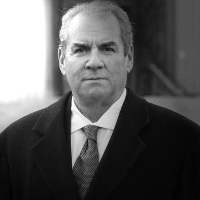 Nyack Criminal Lawyers, New York
Nyack Criminal Lawyers, New York
Sponsored Law Firm
-
 x
x

Click For More Info:
-
Daniel E. Bertolino, P.C.
407 North Highland Avenue Upper Nyack, NY 10960 » view mapDWI, Murder, Rape, Theft & Robbery, more... We Represent Clients in Defense of All Crimes
Our criminal defense practice includes the defense of all levels of felonies as well as misdemeanors and petty offenses. Located in Rockland County, New York.
845-358-9700  Daniel Bertolino Nyack, NY
Daniel Bertolino Nyack, NYAttorney At Law - NY, 1979
Pepperdine University SOL, J.D. - 1978
 YouTube
YouTubeDaniel E. Bertolino - Upper Nyack NY, Criminal Defense Lawyer
 Office InformationEmail or Call 24/7
Office InformationEmail or Call 24/7Click Here for Directions & Support Staff
Sponsored Lawyers
1-7 of 7 matches
Divorce & Family Law, Foreclosure, Bankruptcy & Debt, Criminal, Wills & Probate
As an experienced New York attorney, I have seen how legal problems and debt can consume people’s lives. I am attorney Scott Ugell. I provide legal advice and representation for families, consumers and small businesses because that is who I am, and that is who I care about. For more than 30 years, I have been helping people throughout the Greater Hudson Valley resolve their legal problems efficiently and effectively. At The Ugell Law Firm, P.C., you will find a friendly staff striving to make the legal process as straightforward as possible; responsive and always willing to give you straight, clear answers.
(more)




 Daniel Bertolino Nyack, NY
Daniel Bertolino Nyack, NY YouTube
YouTube Office InformationEmail or Call 24/7
Office InformationEmail or Call 24/7

